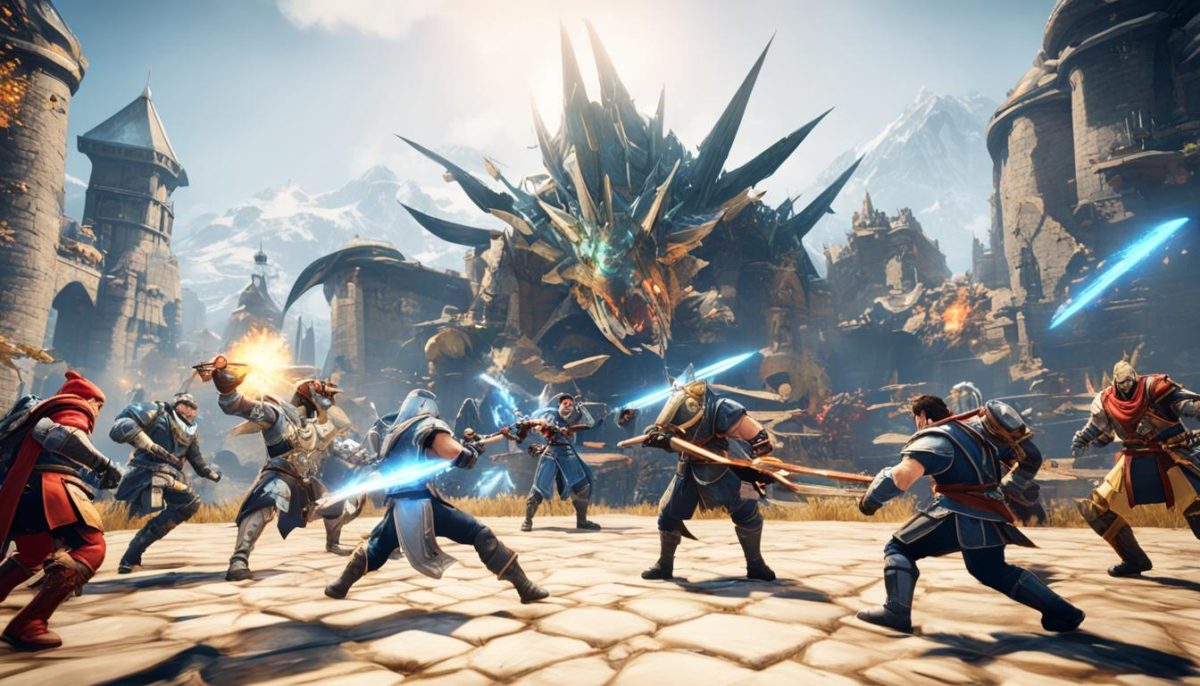Welcome to our comprehensive guide on choosing the right programming language for game development.
Are you passionate about creating your own games? Do you dream of bringing your ideas to life in the digital realm? Then learning a programming language is an essential step in your game development journey.
In this section, we will explore the different programming languages commonly used in game development. We will discuss their advantages and considerations, allowing you to make an informed decision regarding the best programming language for your specific needs. Whether you are a beginner or an experienced developer, this guide will provide valuable insights to help you pave the way towards success in the world of game development.
So, let’s dive in and discover which programming language is right for you!
Popular Programming Languages for Game Development
When it comes to game development, choosing the right programming language is crucial to bring your vision to life. Each programming language has its own set of strengths and weaknesses, catering to different aspects of game development. In this section, we will explore some of the most popular programming languages used in the industry and gain valuable insights into their capabilities.
1. C++
C++ has long been a staple in the game development community. It is known for its raw performance and versatility, making it a go-to choice for creating complex and graphics-intensive games. Many industry-leading game engines, including Unreal Engine and Unity, are built with C++. Its low-level nature allows for efficient memory handling and direct hardware access, which contribute to its superior performance.
Popular Games developed using C++: World of Warcraft, Grand Theft Auto V, League of Legends
2. C#
C# has gained significant popularity in recent years, thanks to the widespread adoption of the Unity game engine. It is a powerful and beginner-friendly language, offering a balance between performance and development speed. C# is favored for its object-oriented approach, which simplifies code organization and promotes reusability. With Unity’s robust ecosystem and extensive documentation, C# is an excellent choice for both experienced and aspiring game developers.
Popular Games developed using C#: Among Us, Ori and the Will of the Wisps, Hollow Knight
3. Java
Java is a versatile language widely used in various domains, including game development. It offers platform independence, making it an attractive choice for developers targeting multiple platforms, such as desktop, mobile, and web. Java’s simplicity and vast community support make it accessible to developers of all skill levels. While it may not be as performant as C++, Java’s ease of use and cross-platform capabilities make it a viable option for many game developers.
Popular Games developed using Java: Minecraft, Runescape, Limbo
4. Python
Python, known for its simplicity and readability, has gained popularity in recent years, not only as a general-purpose language but also in the world of game development. It is often used for prototyping, game scripting, and AI integration. While Python may not be the first choice for performance-critical aspects of game development, its extensive libraries and frameworks, such as Pygame and Panda3D, make it a powerful tool for creating smaller-scale games and experimental projects.
Popular Games developed using Python: Disco Elysium, World of Tanks, Stardew Valley
As you can see, each programming language has its strengths and weaknesses, catering to different aspects of game development. Whether you prioritize performance, ease of use, or platform independence, there is a programming language that aligns with your game development goals. The decision ultimately comes down to your specific project requirements and personal preferences. So, take the time to explore the different options, experiment, and find the programming language that allows you to bring your game ideas to life in the most effective way.

Choosing the Right Programming Language for Your Game Development Journey
Choosing the right programming language for your game development journey is a crucial decision that will impact your project’s success. When making this choice, you need to consider several factors that align with your game concept, desired platform, performance requirements, and other important considerations.
First and foremost, your game concept plays a significant role in determining the programming language you should choose. Carefully evaluate the type of game you want to create, whether it’s a 2D platformer, a complex multiplayer game, or a virtual reality experience. Each game genre has specific programming language requirements, and selecting a language that is well-suited to your game concept will streamline your development process.
The desired platform is another crucial consideration. Determine whether you are targeting PC, consoles, mobile devices, or a combination of platforms. Different platforms have their programming language preferences, so ensure that the language you choose supports all your target platforms and has strong development communities. This will make it easier for you to find resources and get support throughout your game development journey.
Performance is also a key consideration when choosing a programming language. Evaluate the performance requirements of your game and select a language that can handle the processing demands. For graphically intensive games or those with complex physics, a language that offers efficient graphical rendering or built-in physics engines might be advantageous. Consider the scalability of the language and its ability to handle large amounts of data and complex calculations.